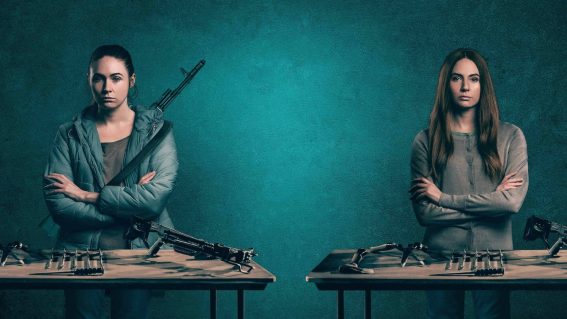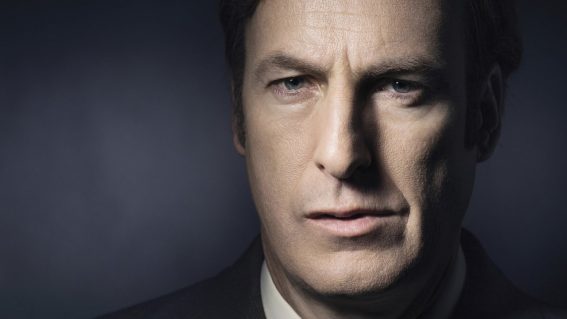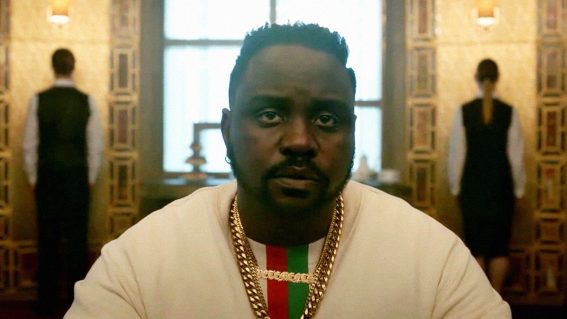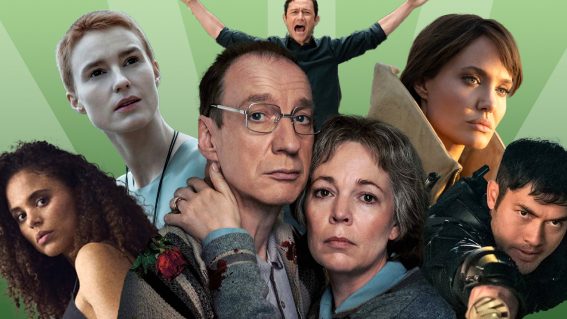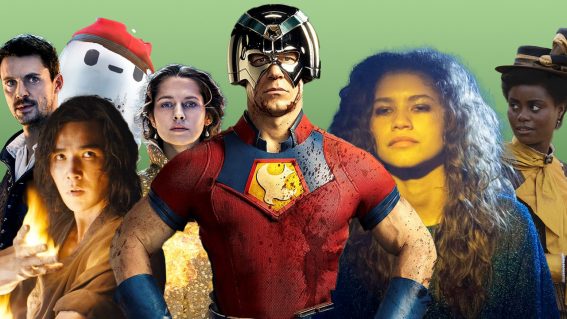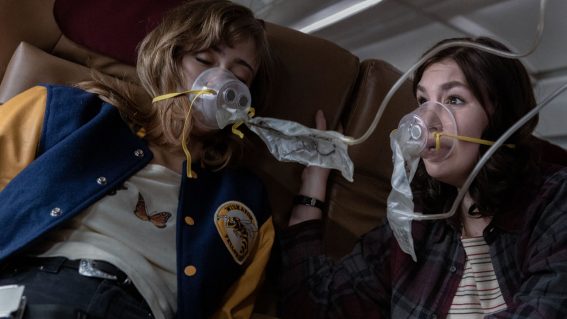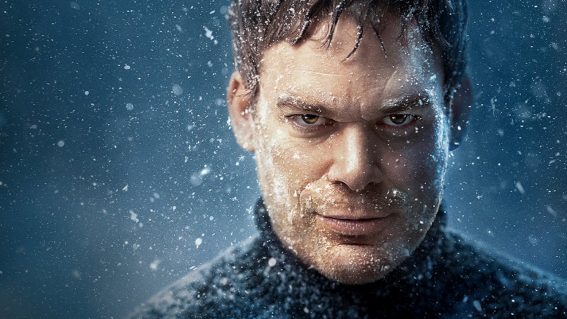Betty is an authentic glimpse into the lives of New York’s young female skaters
A reminder that skating consists of far more than just white boys and their girlfriends.
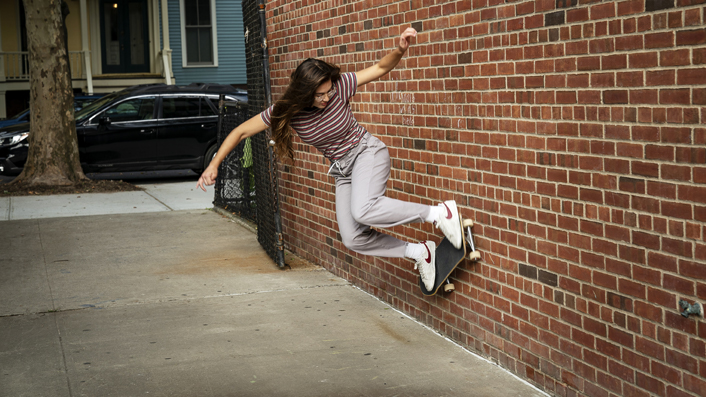
A new comedy-drama on Neon depicts five girls living their lives alongside each other against the background of the intimidatingly bro-y New York skater community. As Katie Parker observes, Betty is a long overdue reminder that the skating world consists of far more than just white boys and their girlfriends.
The first thing we see in Betty is a young woman on a New York City street, gleefully pulling the waistband of her silky pink shorts down in broad daylight to take a photo of a huge, round, painfully real looking purple bruise on her butt.
This is Kirt (Nina Moran), one of the real skater girl stars of the new comedy-drama from filmmaker Crystal Moselle, and a fittingly gross and joyful introduction to a show that offers an unflinchingly authentic glimpse into the day-to-day lives of New York’s young female skaters—bruises and all.
See also
* All new movies & series on Neon
* All new streaming movies & series
A spin-off of the 2018 indie gem Skate Kitchen, a coming-of-age drama that followed the loosely fictionalised lives of a real all-girl skater collective, Betty is named for the epithet used as often to describe girls who hang out with skaters as the girls who skate themselves. In reclaiming it, Moselle and her incredible young cast instantly set the tone for what Betty sets out to achieve—a long overdue reminder that the skating world consists of far more than just white boys and their girlfriends.
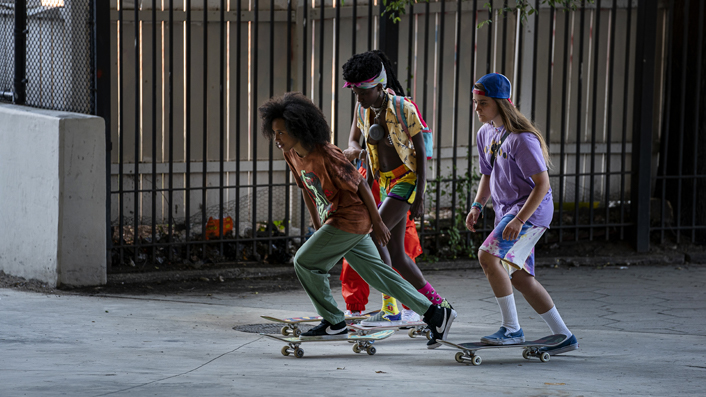
Beginning as friends Kirt and Janay (Dede Lovelace) attempt to start an all girls skating collective (just as they did IRL with Skate Kitchen), Betty finds the pair on the hunt for new recruits. Soon enough they have them, in the form of the awkward but sweet Honeybear (Moonbear), ethereal beauty Indigo (Ajani Russell) and reluctant Camille (Rachel Vinberg), who still holds hope that she can find acceptance as one of the boys.
Over six 30-minute episodes, we see these five girls live their lives alongside each other—getting blazed, hanging out, hooking up, hunting down their stolen goods—and the transformative power that these newfound connections have in helping them make their presence felt in the intimidatingly bro-y New York skater community.
Dealing too with relationship dramas, money problems and the day-to-day foibles of being a girl, this startlingly candid and charmingly slice of life depiction of real New York skater girls could be described as what you would get if you crossed Kids with Girls. They goof around, get into trouble, and treat the streets of New York as their own personal playground, all the while trying to navigate the various pitfalls of their burgeoning womanhood.
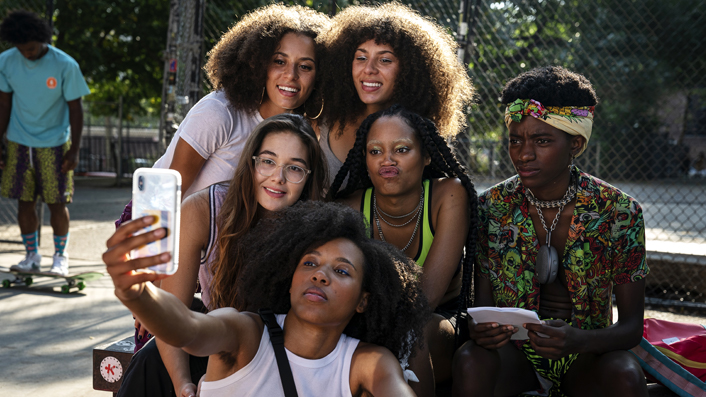
Aesthetically, Betty is a dream. The preternaturally photogenic cast practically shimmer on the screen, wearing the kind of outfits Tumblr pages are made of. Shot with dreamy, dazzlingly realism, in loose, often languid narratives, the episodes are brimming with feminine warmth and intimacy in a way that is still rarely seen so explicitly onscreen—and makes a refreshing departure from the cold self-seriousness of other zoomer dramas like 13 Reasons Why and Euphoria.
Yet as loose and languid and pretty as Betty may feel to begin with, Moselle has more on her mind than just creating dreamy videos of her incredibly attractive cast. And increasingly the consequences of inhabiting a space as male dominated as the New York skate scene loom ever larger over the group, even as the girls try to exist outside of it.
At every turn, male gatekeepers seem to police their spaces and present obstacles to the girls getting what little room and recognition they need. Sometimes this happens more explicitly than others. In one of the show’s most fascinating arcs, Janay must grapple with accusations made against her male best friend and podcasting partner, in a carefully considered and remarkably unsensationalised examination of the real world ramifications of the #MeToo movement.
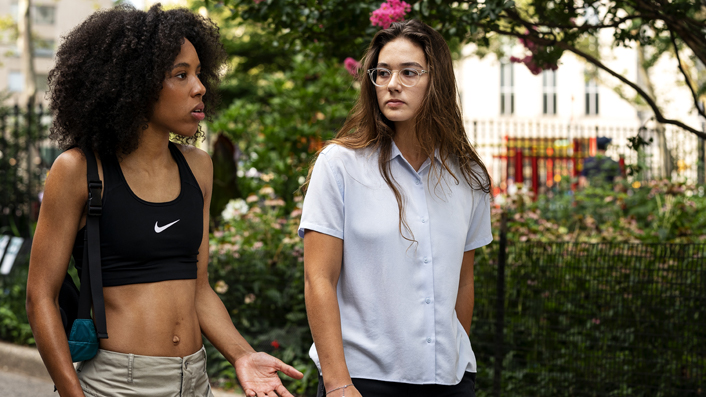
Yet Betty’s masterstroke is in its refusal to dwell or stew on the seemingly inevitable roadblocks the girls meet along the way, and instead to focus on what is gained from the connections between the girls themselves. As Kirt says in episode five, ‘Perstephonie’: “I wanna stop fighting the patriarchy, and start helping the matriarchy.”
As such, rather than present the girls as hapless prey, Betty is merely realistic about their dynamic with the men with whom they share the skate parks—and though there is a kind of bristling tension every time the girls must interface with their male counterparts, Moselle takes care to show the nuance in these interactions.
Boys are not so much enemies in any situation as they are unpredictable variables. Swinging wildly between amiable and antagonistic, as individuals they are often revealed to be perfectly benevolent—but as a group and a community, it is clear that, beneath the surface, gendered lines are still very clearly drawn in the skating world.
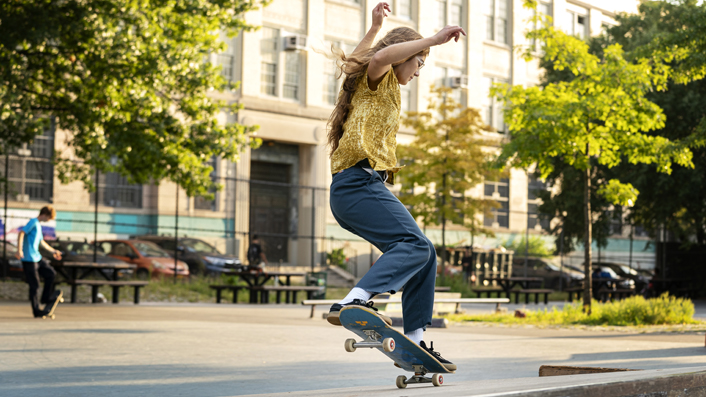
Moselle, who is perhaps best known for her acclaimed 2015 documentary The Wolfpack, has an almost uncanny ability to elicit convincing, naturalistic performances from her non-professional cast. Given that they are more or less playing themselves, it is no wonder Lovelace, Moran, Russell, Vinberg and Moonbear are so at ease inhabiting these roles.
Discovering the girls on the subway back in 2017, Moselle was captivated by their easy confidence and obvious swagger—and in talking to them, was introduced to Skate Kitchen, their all female skating collective. The name, a riff on the comments often left on girl’s skating videos (“why aren’t they in the kitchen?”), became the name of Moselle’s next movie, and the girls were cast as the stars.
Acting alongside Jaden Smith, the film’s only professional actor, their onscreen luminosity was clear, and Skate Kitchen became an indie darling, winning acclaim for its depiction of queer romance, diverse female communities and naturalistic performances. It’s no wonder the concept has now been snapped up by HBO for this show.
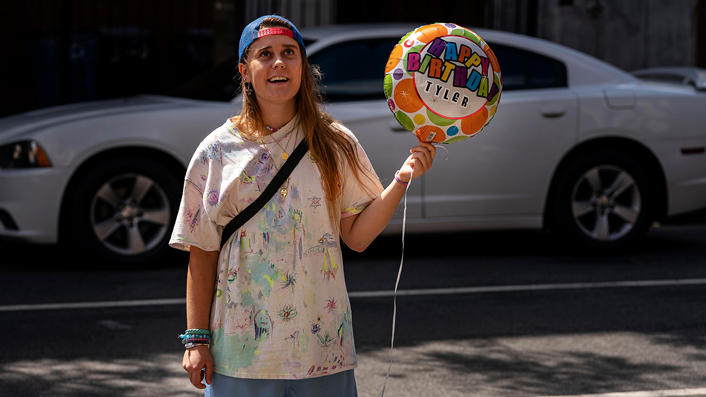
It may be her second time around telling their story, but Moselle is still clearly besotted with her subjects—and, hypnotic as they are, it’s not hard to see why. But by examining her characters’ relationships and reactions with genuine, gentle curiosity, she manages to avoid merely replicating the male gaze. Instead she creates a warm, witty and incredibly inclusive world that views its characters with empathy rather than judgement.
At a time when New York remains in lockdown, and continues to make headlines as one the states in America hardest hit by COVID-19, Betty’s depiction of the city right now feels particularly poignant—and as a love letter to the city, the timing is somewhat uncanny.
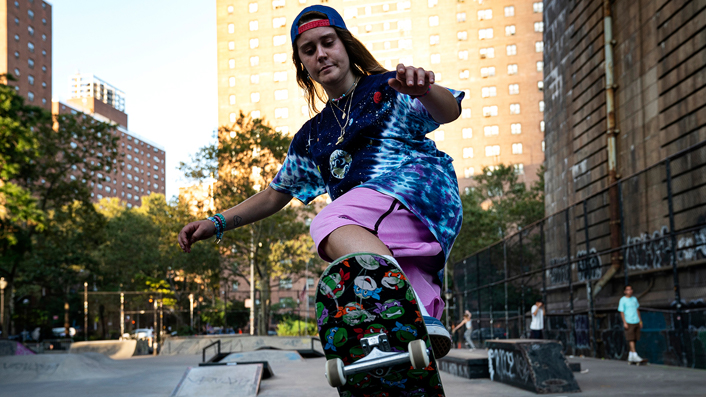
For the girls of Betty, New York is a playground. Whether they are taking mushrooms in the park, dancing in the street or trying to make themselves heard over the thundering trains that travel over the skate park, rarely does an onscreen setting play such an active, integral role to a story.
With its cast of wild, free and intensely watchable young women, it’s easy to imagine Betty as little more than an exercise in aesthetics. But Moselle’s thoughtful script and dynamic cast elevate it beyond this—and in doing so succeeds in capturing a moment in girlhood that for once young women might be able to relate to.







